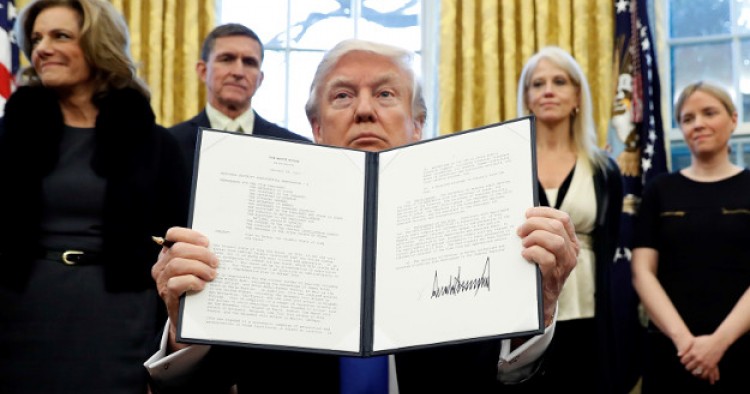Iranian officials and state-run media have reacted angrily to President Donald Trump’s executive order that bans the entry of the citizens of Iran and six other Muslim-majority countries. Iranian Foreign Minister Javad Zarif wrote in his official Twitter account: “#MuslimBan will be recorded in history as a great gift to extremists and their supporters.” He also tried to exploit the issue to convince the Iranian people that Washington's enmity was not just with the Iranian government. "#MuslimBan shows [the] baselessness of the US claims of friendship with the Iranian people while only having issues with the Government." He pledged Tehran will take “reciprocal measures.”
Iran’s Foreign Ministry also summoned the Swiss ambassador to Tehran – who represents US interests in Iran – to protest Washington’s travel ban against Iranian citizens.
Separately, Iran’s Parliament Speaker Ali Larijani also condemned Washington’s travel ban and claimed it “showed their [US] hostile and racist approach.” Ayatollah Sadegh Larijani, the chief of Iran’s Judiciary, called on the government to “give a decisive response to Trump’s latest decision.”
Some conservative outlets also took the opportunity to attack the Rouhani government. Kayhan daily, a strong critic of the government and whose editor is directly appointed by Supreme Leader Ali Khamenei, blamed the Rouhani administration for trusting the US government and pursuing “weak” diplomacy toward the West.
The Middle East Institute (MEI) is an independent, non-partisan, non-for-profit, educational organization. It does not engage in advocacy and its scholars’ opinions are their own. MEI welcomes financial donations, but retains sole editorial control over its work and its publications reflect only the authors’ views. For a listing of MEI donors, please click here.













